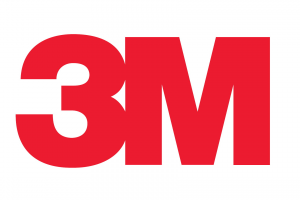The pitfalls of acquittance
1.10.2014Company: Amcham
“Acquittance” is the legal term for a form of confirmation which a creditor may (and in fact sometimes must) issue to a debtor to certify that debts have been discharged. Under the new Civil Code, issuing a certificate of acquittance has fundamental consequences that may be detrimental to the creditor’s position.
Firstly, if the acquittance confirms that the principal has been repaid, then the assumption is that fees, interest,
charges and penalties have also been repaid. Secondly, if the debtor holds acquittance from the creditor confirming the discharge of a debt which fell due at a certain moment, then this also implies that performances which were owed to the creditor at an earlier time based on the same legal title have also been settled. Moreover, once the creditor has
issued a certificate of acquittance, the debt is deemed waived even if it was not actually discharged.
As a consequence of the comprehensive overhaul of Czech private law, big changes have also occurred with respect to concepts and institutions that are less well known, which gives rise to potential pitfalls. In the following, we take a closer look at one of these institutions, known as acquittance (confirmation of discharge of debt).
Upon accepting performance from a debtor, the creditor must issue a note of acquittance to the debtor upon their request, specifying the identity of the debtor and the creditor, the subject matter of performance, and the place and time at which the debt was discharged. The debtor may withhold performance unless the creditor issues acquittance. If the creditor is not careful with respect to the contents of the acquittance, their position vis-a-vis the debtor may suffer in various ways, as the new Civil Code associates serious consequences with the issuance of an acquittance. However, these consequences are conceived as "rebuttable presumptions", i.e., the creditor may submit evidence to show that the consequence which the law presumes by default did in fact not occur.
The first of these rebuttable presumptions entails that an acquittance which was issued for the principal debt automatically also covers accessories (i.e., interest, default interest, costs of collection, etc.).
The second rebuttable presumption concerns recurring performances based on the same legal title - a typical example being e.g. rent payments. If the debtor holds acquittance from the creditor for a performance that became due at a later date, then the discharge of debt owed earlier based upon the same legal title is automatically implied.
In the event of a dispute between the debtor and the creditor, the burden of proof then rests with the creditor when it comes to demonstrating that the debtor did not settle accessory claims in connection with the principal claim and/or did not settle debt that became due at an earlier point in time. Bearing this burden of proof can often be a costly and cumbersome affair. For this reason, we recommend paying particular attention to the way in which the note of acquittance is phrased and providing as much information as possible regarding the discharged debt and, equally important, any debt owed by the debtor which is still outstanding. This means that one should precisely specify which debt was discharged by the debtor, whether fees, interest, and charges etc. were also paid, and/or whether debt that fell due at an earlier time for recurring performances has already been discharged.
For the sake of completeness, we ought to mention that if the creditor issued a note of acquittance to a debtor in spite of the fact that the latter did not actually perform, then this has the effect of the debt being discharged - a legal consequence which occurs in any case and leaves no room for presenting evidence to the contrary.
+420 222 929 301
BNT office
Praha 1








